Back to blog
9 MIN READ
Top 9 Mobile App Retention Strategies To Enhance Stickiness
PUBLISHED
19 December, 2023

Product Analytics Expert
Mobuli app retention is an important metric for mobile product teams to track. It measures the percentage of users who continue to use an app after their initial download—offering insights into stickiness, loyalty, and overall engagement.
As you’re probably well-aware, boosting retention is essential for success. But how do you actually go about doing that?
Here at UXCam, we’ve helped thousands of mobile product teams use data to boost their app retention. In this guide, we share five of the most effective strategies we’ve seen for increasing app retention—from onboarding to gamification.
How to increase app retention
Streamline the onboarding process
Ensure good app performance
Provide a customized user experience
Gather user feedback
Add new features
Use gamification to increase engagement
Implement push notifications
Offer perks to engaged users
Monitor 24/7
Streamline the onboarding process
Your app may be familiar to you, but to many users, it will be a completely new experience.
Onboarding is how you move from unfamiliar to familiar as quickly as possible. By adding in a structured educational process, you can teach users how to move around your app, where to find key features, and how to find the value you’re offering them
Even if you have an onboarding process in place, it probably isn’t optimized for retention. Using a tool like UXCam to analyze the effectiveness of your onboarding process can help you identify problems and make changes that will keep users coming back for more.
TalkyTalk used UXCam to do just that.
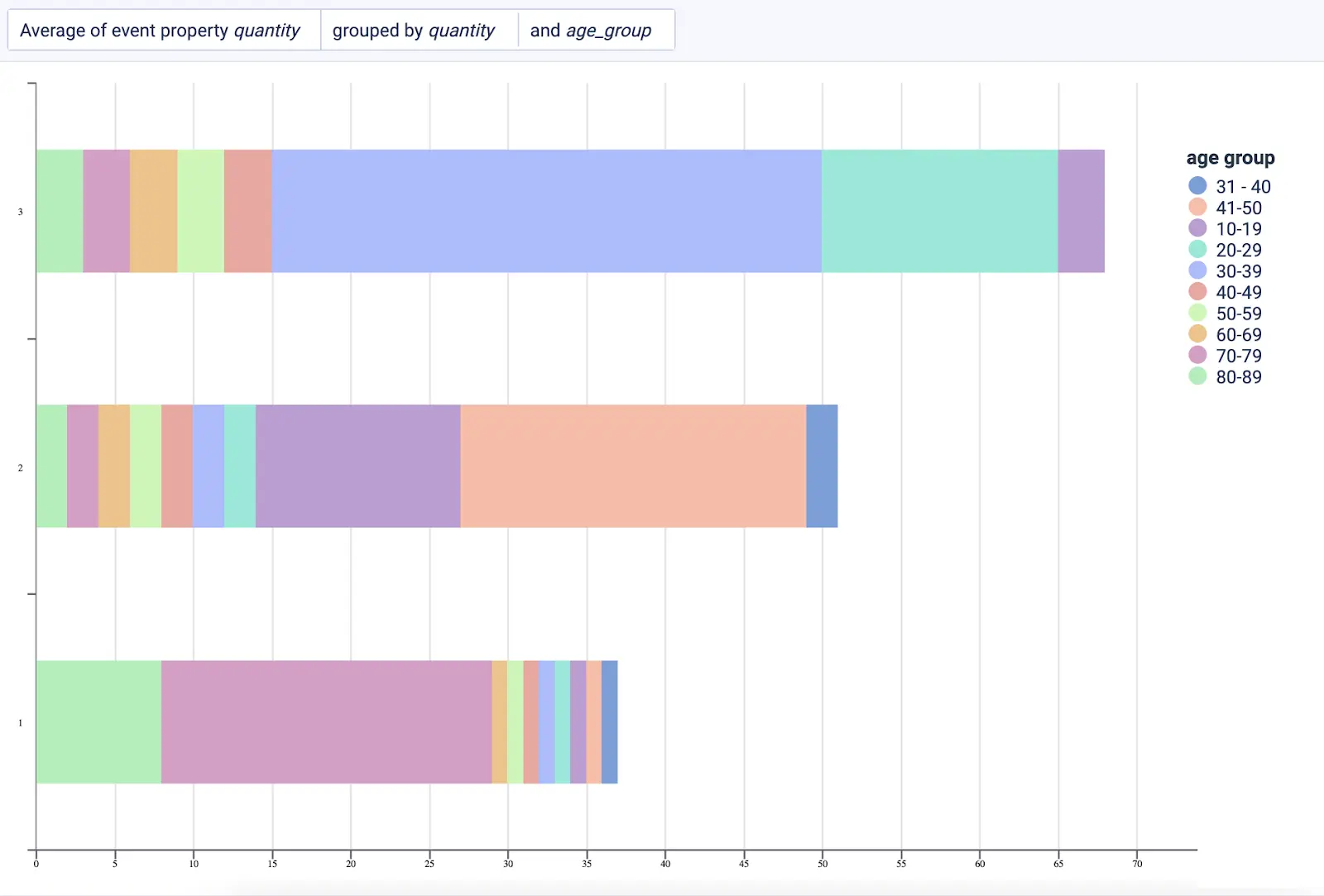
The team segmented free trial users who were currently engaged with the onboarding process and paid users who had already completed it. They immediately noticed that there were far more rage taps in the free trial segment (shown in red above).
They then built a new segment for free trial sessions that contained rage taps and looked into individual user experiences using session replays. They ended up finding that users were rage tapping through the onboarding process—reducing the number of screens and simplifying the language made a big difference.
Ensure good app performance
Users tend to have a negative experience with apps that are sluggish, glitchy, or difficult to navigate. As a result, it's essential to consistently assess and enhance the performance of your app. This entails focusing on areas like preventing crashes, ensuring smooth and accurate gestures, and reducing the app's loading time.
You can use to gain valuable insights into how users engage with your app.
You can, for example, apply advanced filters to identify frustrating sessions. Filter sessions specifically for technical or UI issues, narrow down the analysis to events like crashes, rage taps, and UI freezes, and easily share app logs with developers.

With this feature, you can easily pinpoint the areas where users might encounter slow loading times, crashes, or any other performance-related problems.
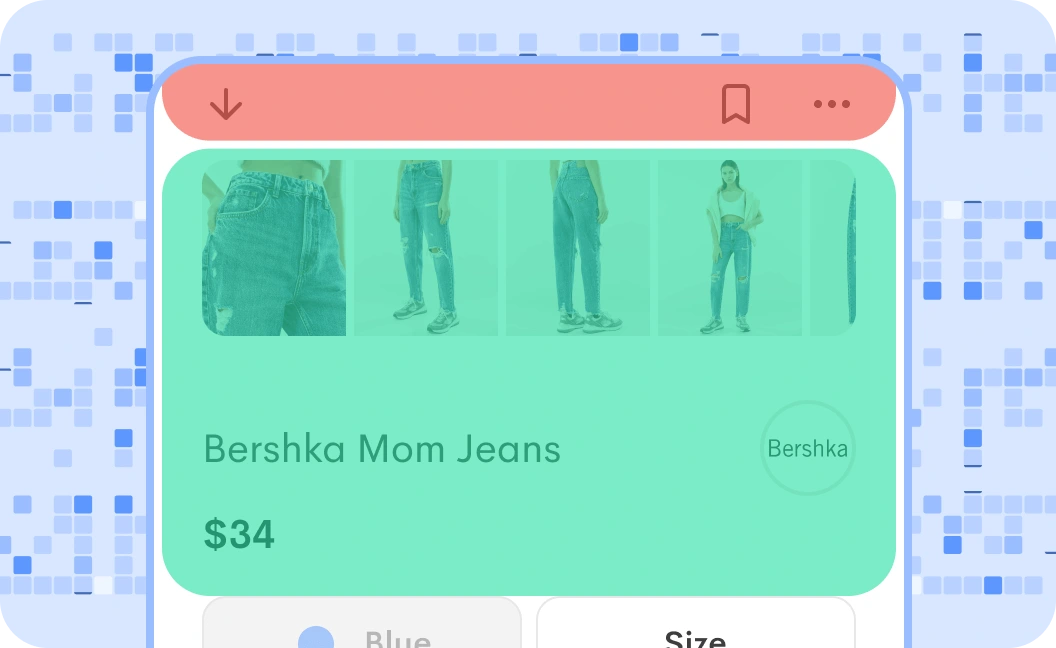
Additionally, UXCam provides detailed analytics and heatmaps that give you a visual representation of user interactions. These insights can help you pinpoint specific screens or features that may be causing performance bottlenecks.
Provide a customized user experience
To differentiate your app and make it truly remarkable, offering a personalized user experience is highly effective. By leveraging data on users' location, interests, and behavior, you can customize the app to cater to their individual needs and preferences. Consequently, this approach enhances user engagement and satisfaction, resulting in increased app usage and retention.
UXCam provides pre-configured filter groups to help you see customer patterns quickly. For example, you can analyze the behavior of new users by their devices during your onboarding flows, see how power users behave, or find out why users churn.
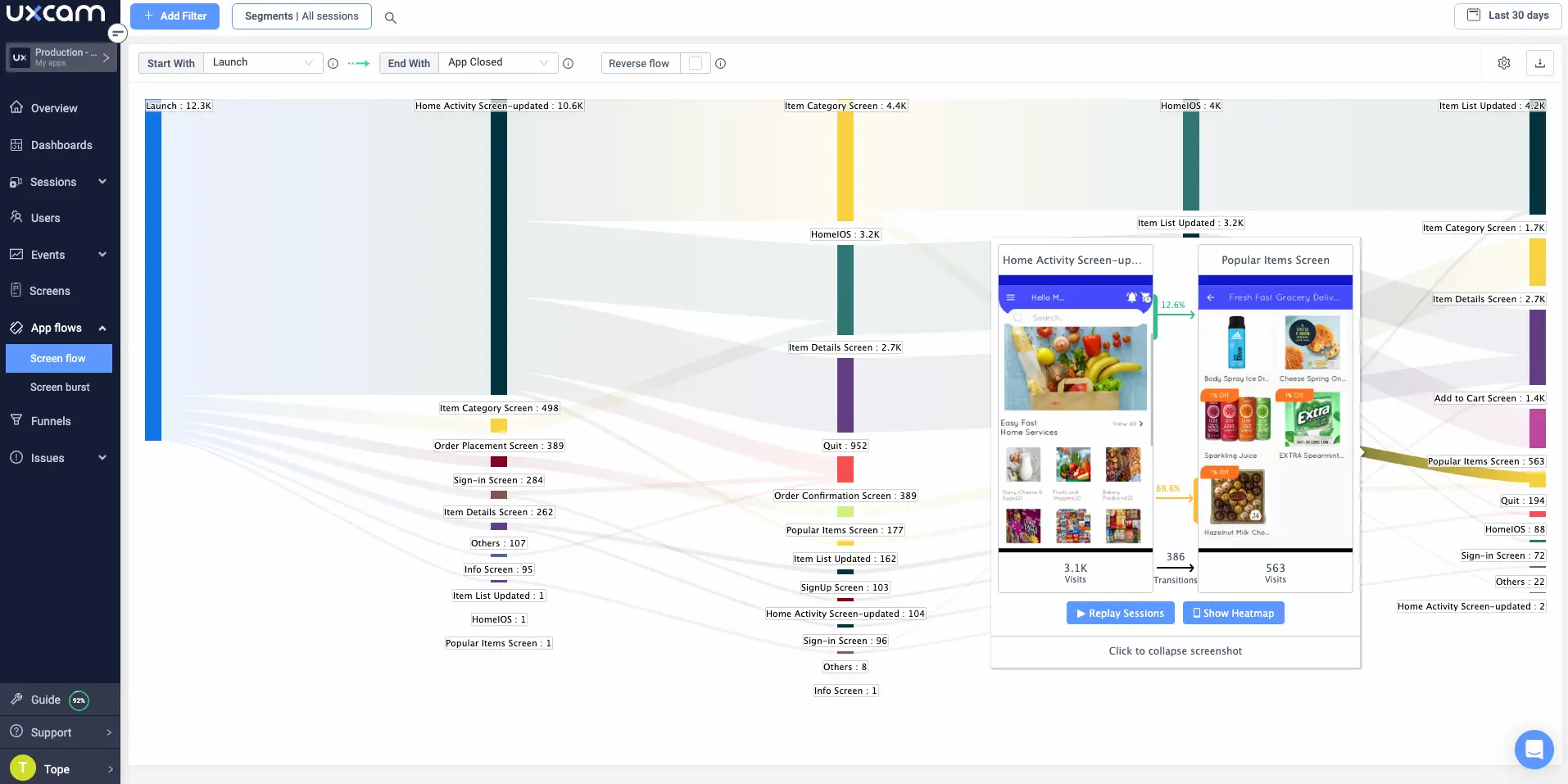
You can also use custom events and user properties to slice your user data. This allows you to expand your analysis and dive into user behavior based on subscriptions, differences between high and low LTV user groups, or the impact of experiments by segmenting users according to AB tests.
Gather user feedback
Directly asking your users is an excellent method to familiarize yourself with them. Surveys serve as a valuable tool for gathering feedback from users and gaining insights into their preferences, satisfaction levels, and areas of concern.
Monitoring app store reviews also provide valuable information on what users are expressing about your app. By actively listening to your users, you can gain a deeper understanding of their needs and make necessary improvements to your app.
In addition to surveys and app store reviews, user testing is another highly effective approach for collecting user feedback. User testing involves observing users as they interact with your app and noting their behavior and feedback.
This can be done through in-person sessions or integrating tools like UXCam. By watching how users navigate through your app and listening to their thoughts and reactions, you can gain valuable insights into areas that need improvement or features that are working well.
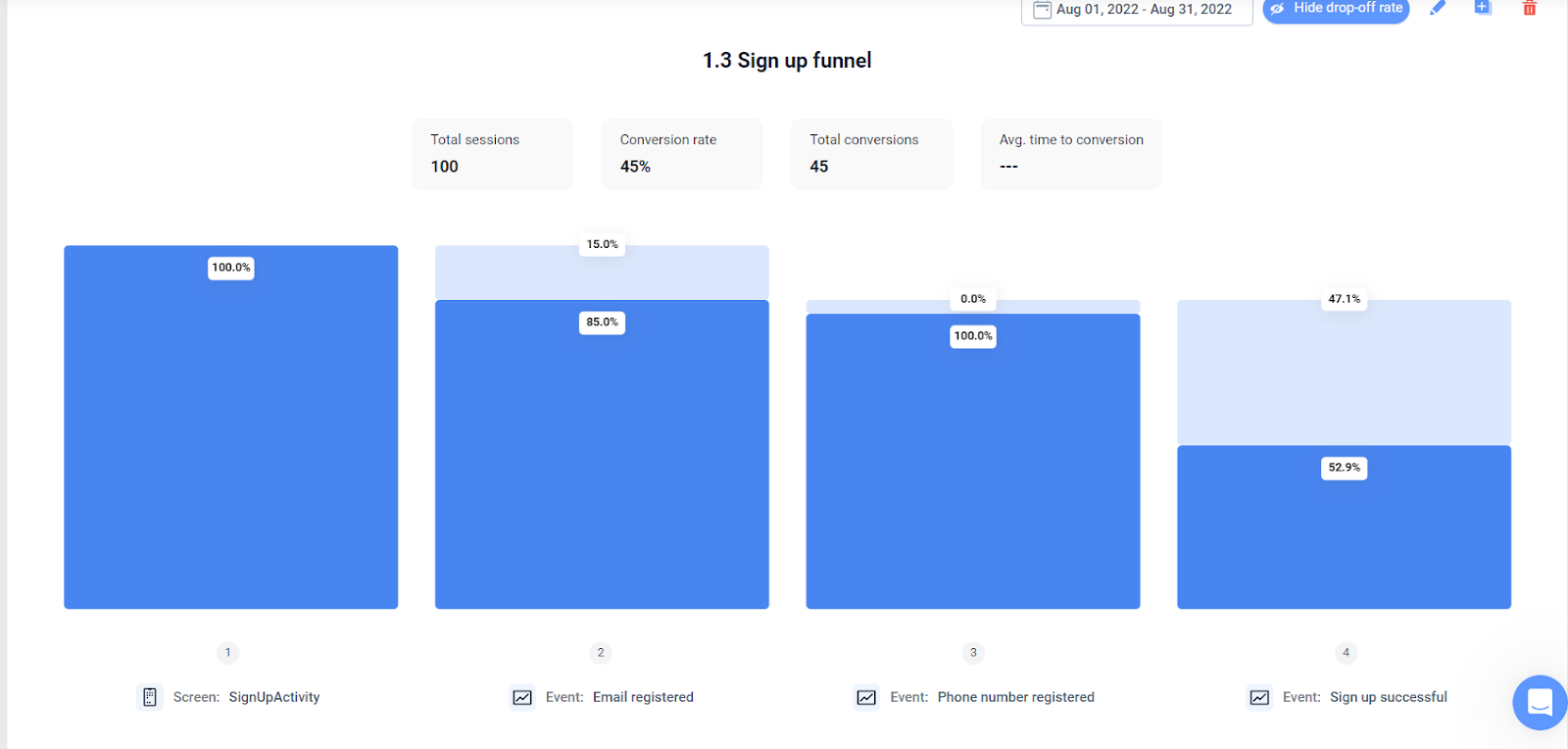

UXCam allows you to set up conversion funnels to track user journeys and identify drop-off points. By analyzing these funnels, you can understand user behavior patterns and make informed decisions on how to improve the app's conversion rates.
Add new features
Users needs and preferences can evolve.
By staying up-to-date with these changes, you can adapt your app to better serve your audience. Conduct regular user surveys, gather feedback, and analyze user behavior to identify emerging trends and expectations.
It’s also important to find flaws in the new features that may be impacting the user experience. By conducting thorough testing and gathering user feedback during the development process, you can address any issues before they affect your users.
PlaceMakers, a construction material supplier in New Zealand, found a flaw in a new feature using UXCam. The feature (called “Constrained Products”) was meant to inform users when certain materials were unavailable for purchase. But, after implementing this feature, sales dropped by 80%.
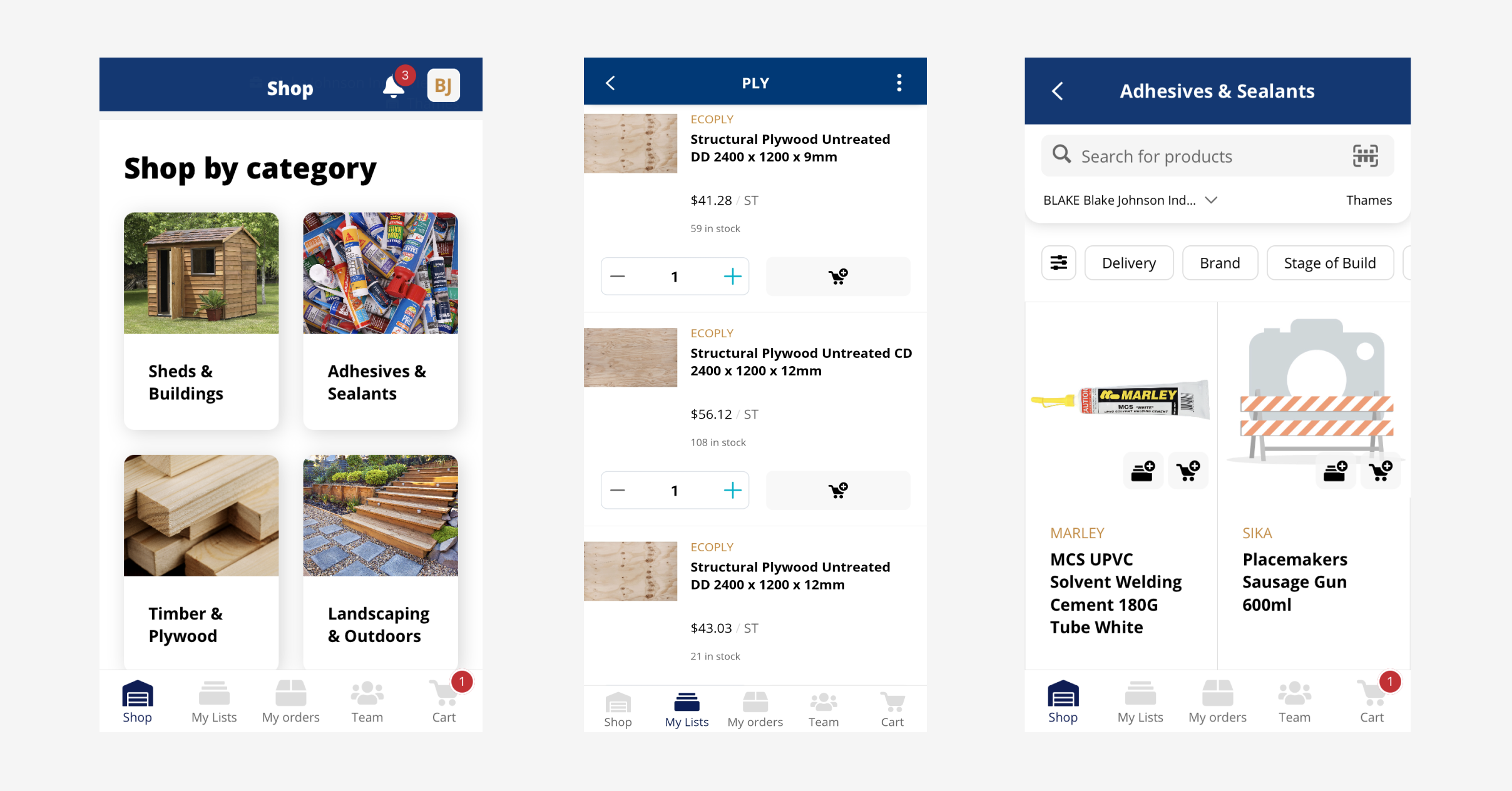

To investigate the issue, PlaceMakers used UXCam's session replay and heatmaps. Through analysis of user behavior, they discovered that the messaging for constrained products was too strong and deterred users from purchasing.
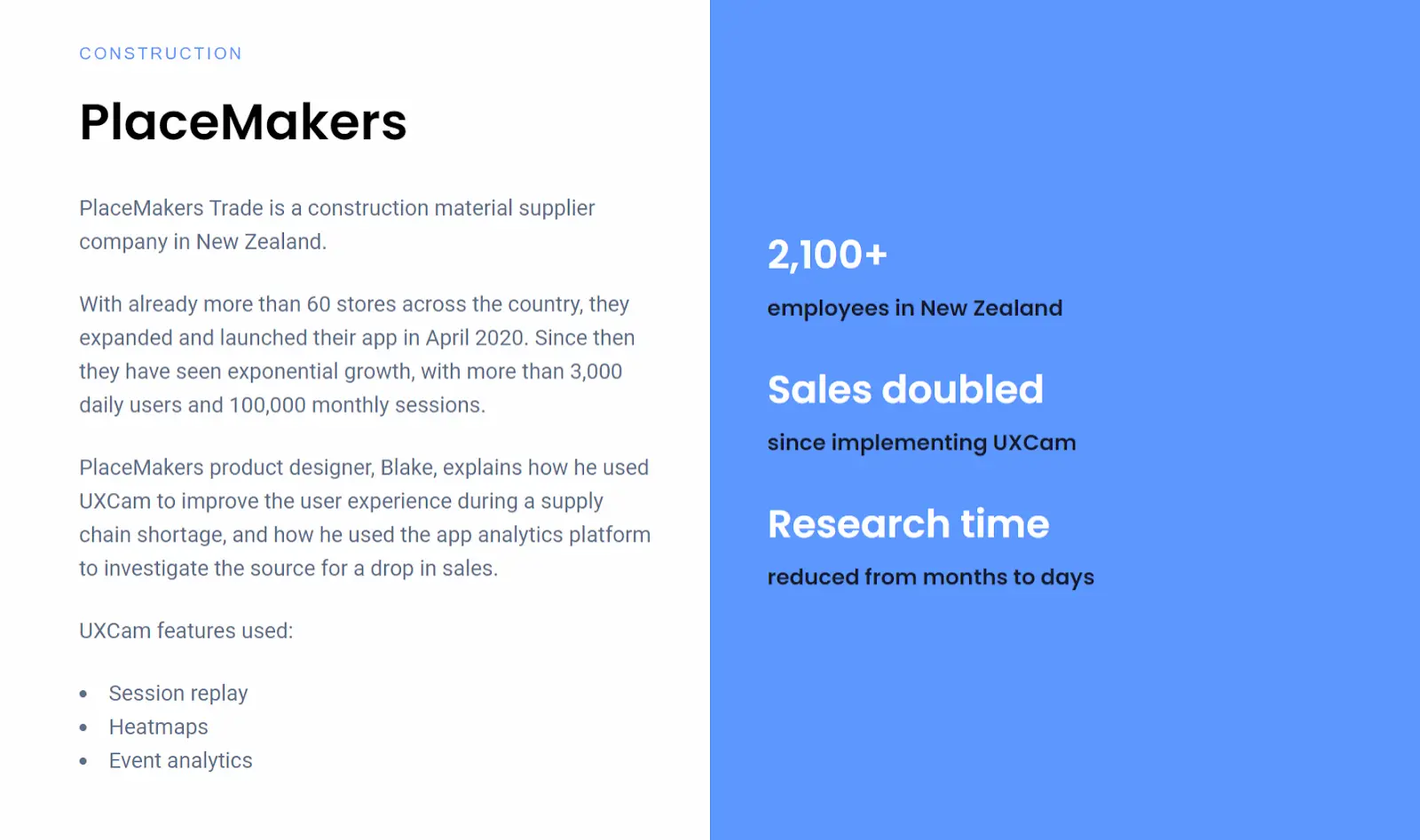
PlaceMakers revamped the design of the feature, adopting a more positive approach to convey availability with slightly longer delivery times. After making this change, sales didn’t just recover—they doubled.
Use gamification to increase engagement
Use gamification to make the app more fun and engaging for users.
By tapping into users' intrinsic motivation and desire for achievement, gamification can create a more enjoyable and rewarding experience, ultimately leading to increased engagement and retention.
For example, Apptentive found that adding a progress bar to an app increased retention rates by 20%.
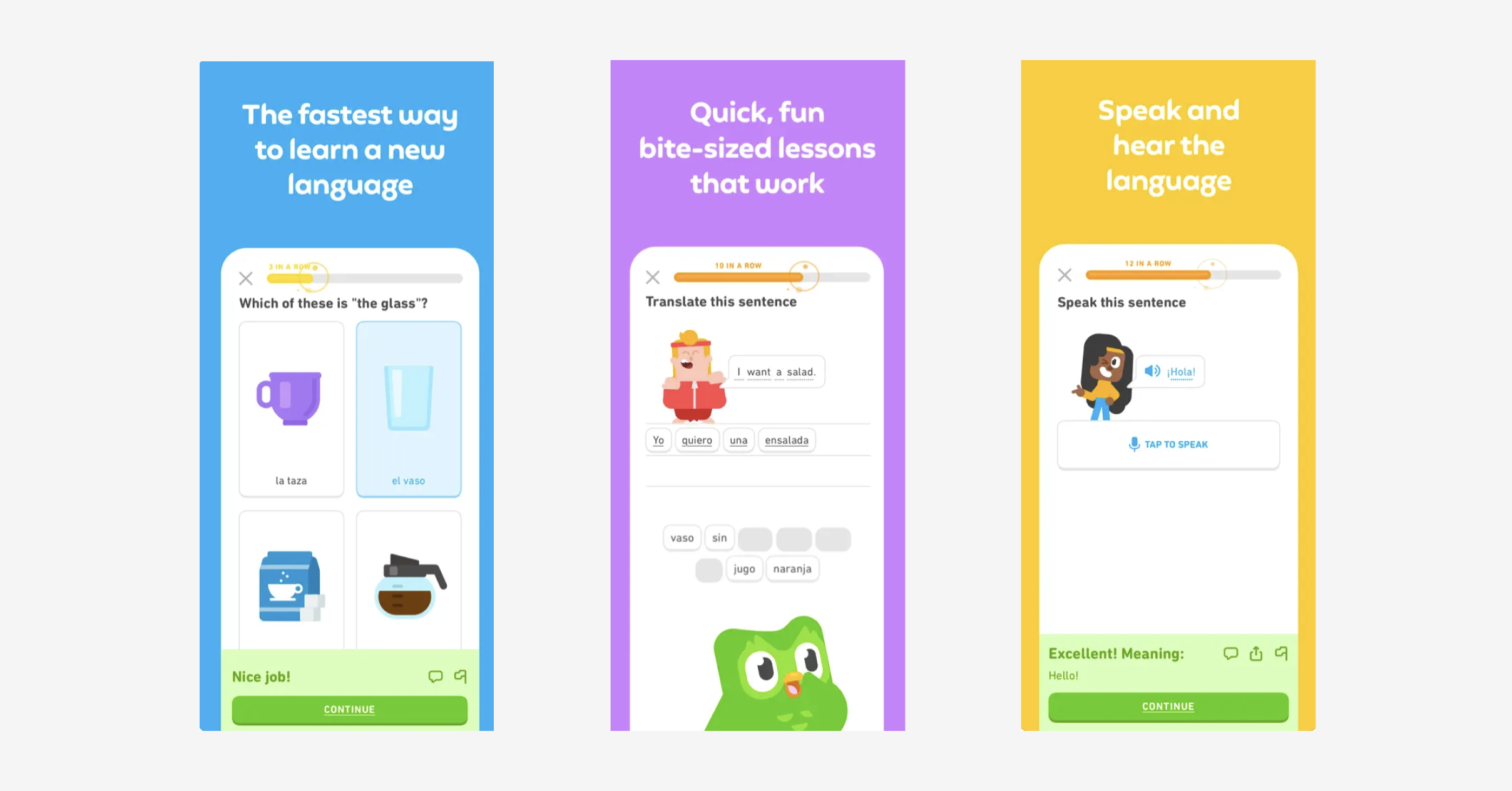

Other gamification techniques include implementing badges, points, levels, or even virtual rewards to encourage users to interact with the app more frequently. Duolingo does this extremely well, with 8+ gamification techniques working together to pull users back into the app day after day.
Implement push notifications
To boost user engagement and increase the chances of users coming back to the app, it's a good idea to use push notifications. These notifications serve as reminders to users, encouraging them to revisit the app and stay connected.
A report by Urban Airship revealed that monthly app opens per user are 26% higher among those who opt-in for push notifications compared to those who opt out. This emphasizes the importance of push notifications in keeping users engaged. By leveraging this feature, app developers can establish direct and effective communication channels, keeping users informed and motivated to keep using the app.
Offer perks to engaged users
It's important to offer perks to engaged users to show appreciation and encourage them to continue using the app. By providing rewards or incentives, like exclusive discounts or special promotions, users are more likely to feel valued and stay committed to the app.
A great example of this is Chick-fil-A.
The company regularly offers app-exclusive discounts and promotions as a way to reward their customers and create loyal users. This strategy has proven successful, as Chick-fil-A's app sees over 10 million downloads and continues to have strong user retention rates.
Monitor 24/7
Finally, monitoring the app 24/7 is essential for keeping users engaged.
Trends can change quickly, and you need to be able to anticipate and respond accordingly. Real-time analytics can help you detect any issues before they become a problem, ensuring users have a positive experience with your app.
UXCam integrates with mobile apps easily through a lightweight SDK and monitors users (without disturbing them) 24/7. It provides detailed insights on how users interact with your app and gives you the data you need to take informed decisions.
How to use UXCam increase mobile app retention
Mobile app acquisition is crucial, but keeping users engaged and coming back for more is where the real magic happens. That's where UXCam's retention analytics solution steps in, empowering you to understand user behavior, identify friction points, and implement data-driven strategies to boost retention.
Here's how you can leverage UXCam to boost your app's retention rate:
1. Diagnose churn with session recordings and funnels
Session Recordings: Visually witness user journeys through recordings, pinpointing moments of frustration, confusion, or abandonment. Watch how users interact with key features, identifying potential design flaws or confusing workflows. Learn more on how to analyse session recordings.
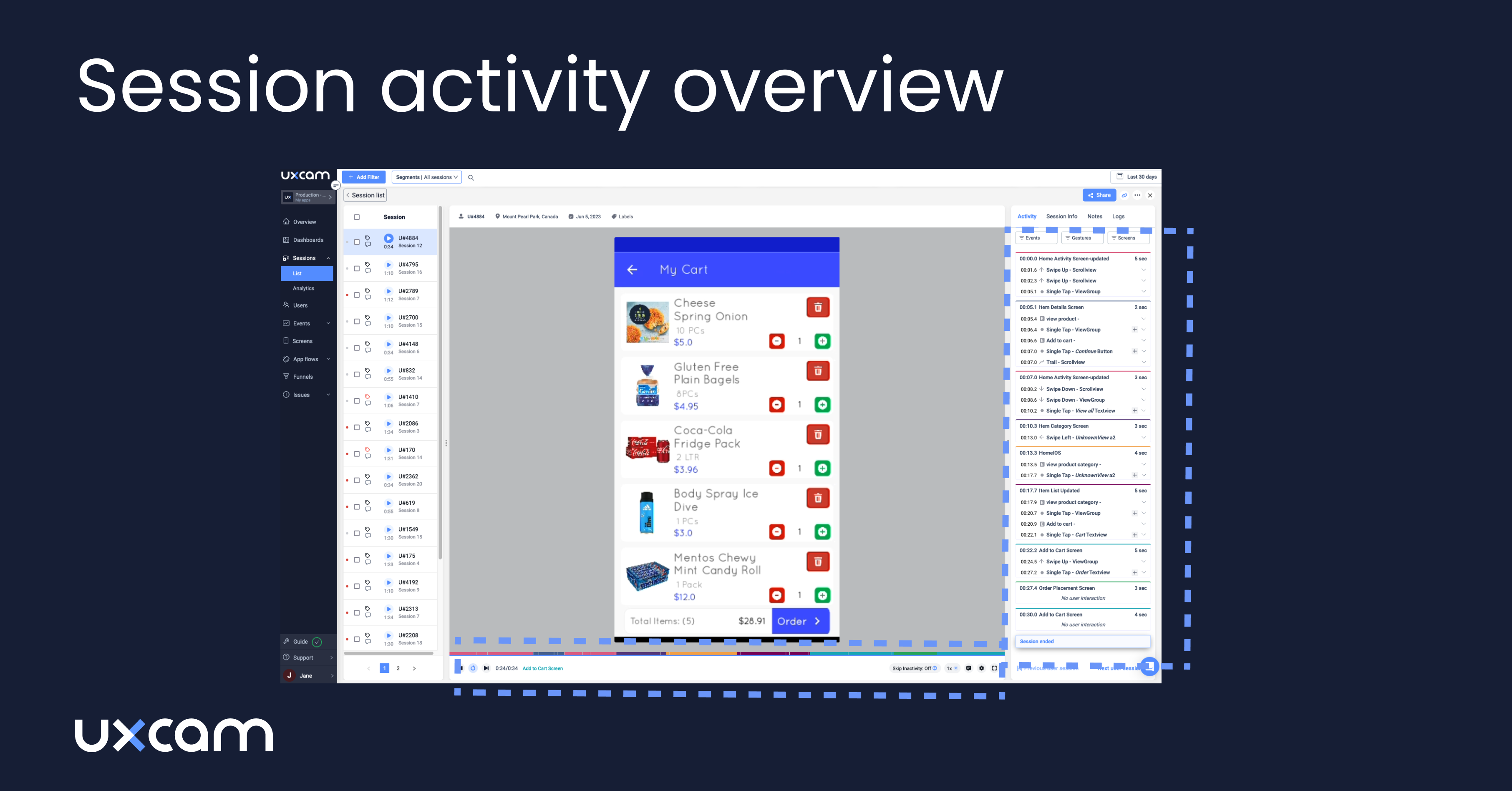

Funnels: Map out critical user journeys, like onboarding, checkout, or feature completion. Analyze drop-off points within each funnel to understand where users are getting lost or disengaged. This can reveal issues like complex sign-up processes or confusing payment steps.

2. Segment users and tailor experiences
User Segmentation: Divide your user base into groups based on demographics, behavior, or engagement level. This allows you to personalize the app experience and target interventions to specific user segments. For example, offer re-engagement campaigns to inactive users or highlight new features for highly engaged ones.

Heatmaps: Understand where users are focusing their attention within the app. Identify areas of low engagement or confusion by visualizing touch heatmaps. This can expose overlooked UI elements or hidden features needing better discoverability.
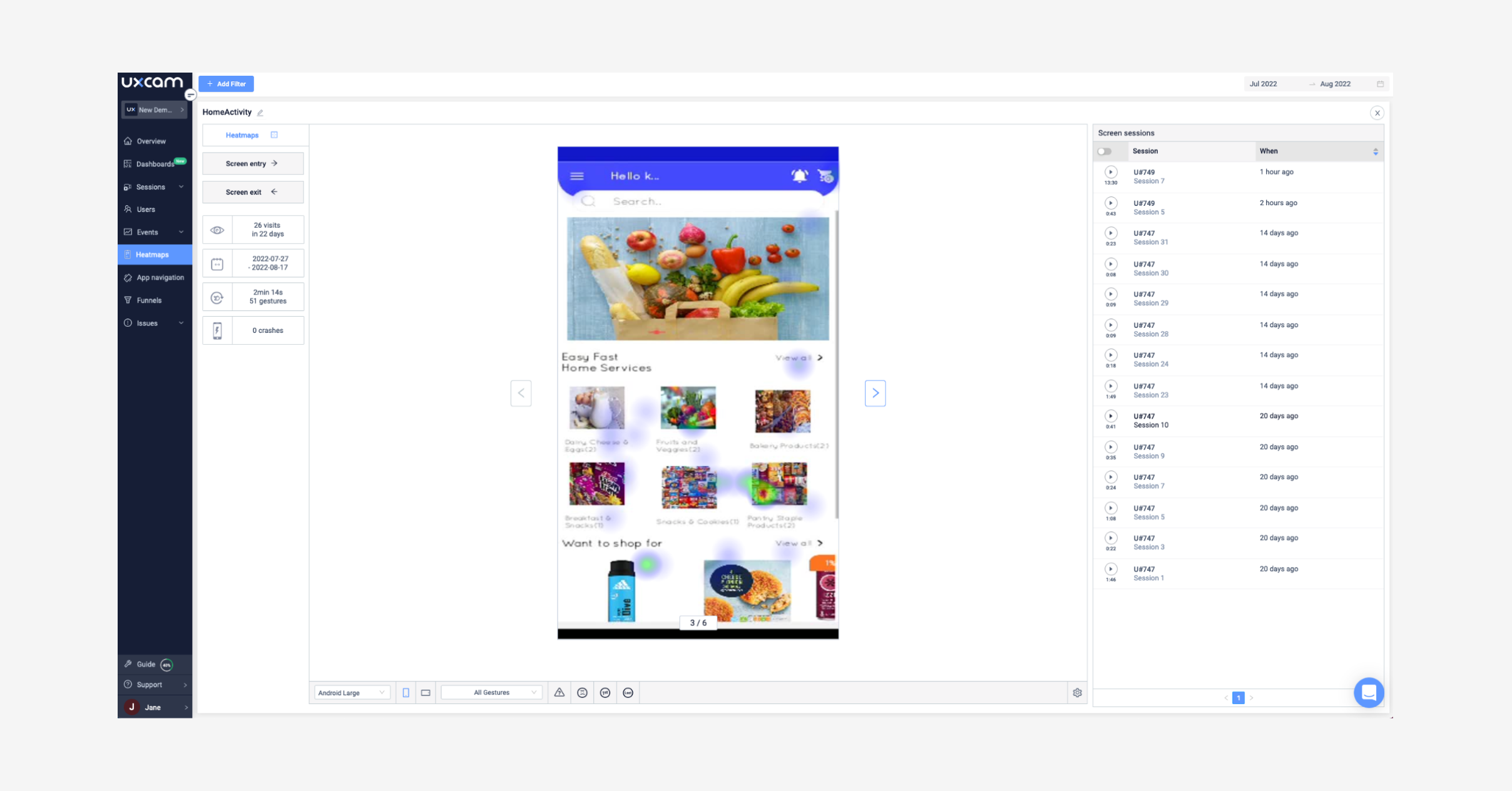

3. Analyze churn signals and take action
Cohort Analysis: Compare the behavior of different user cohorts over time to identify trends and predict churn signals. For example, analyze churn rates of users acquired through specific channels or during a particular campaign. This helps you understand which acquisition strategies are driving sustainable engagement.
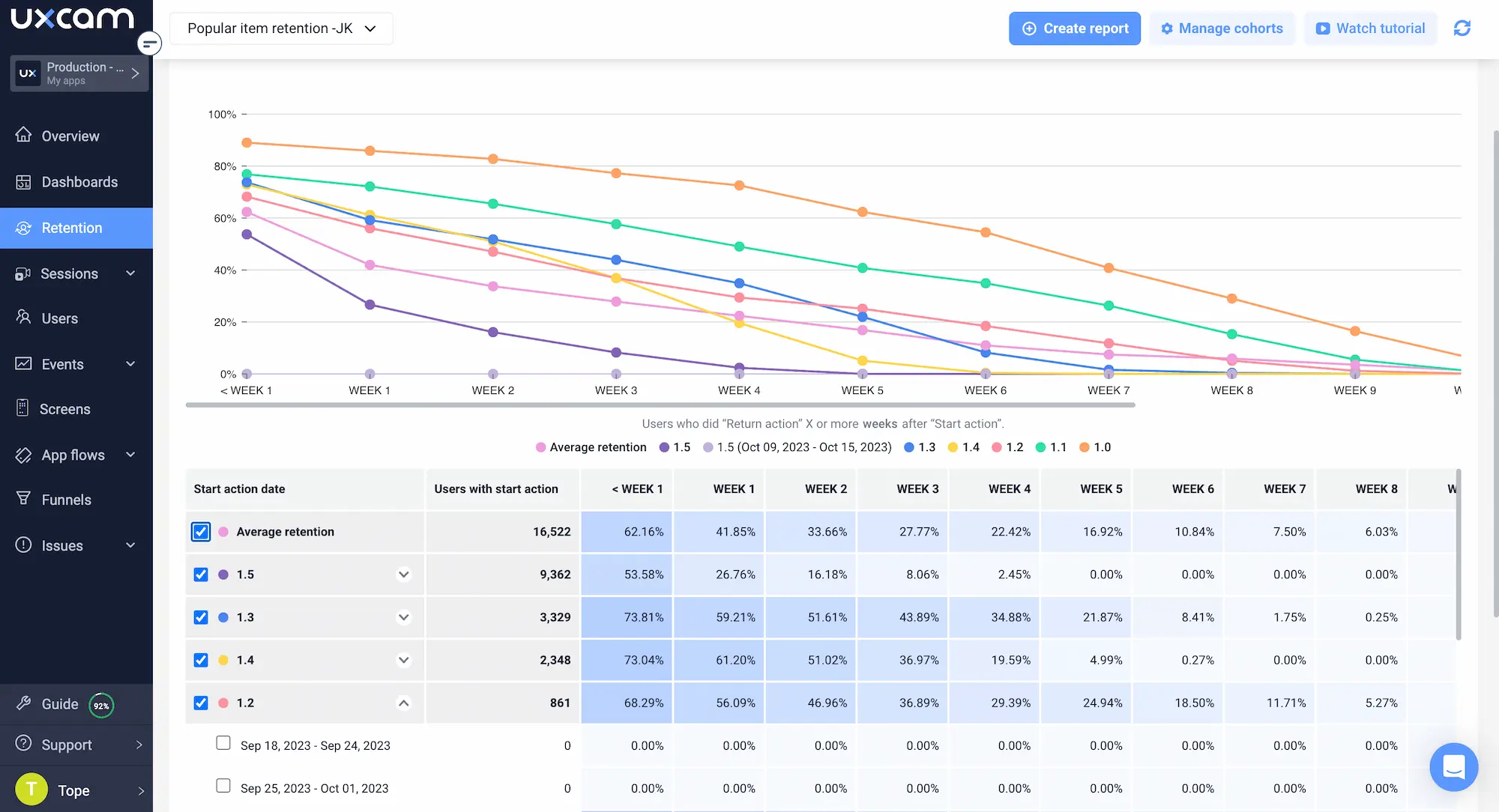
Retention Reports: Monitor key retention metrics like Daily Active Users (DAUs), Monthly Active Users (MAUs), and churn rate. Track these metrics over time to assess the effectiveness of your retention efforts and identify areas for improvement.


4. Implement data-driven retention strategies
Targeted Push Notifications: Use user segmentation and engagement data to personalize push notifications. Send relevant messages that encourage re-engagement based on user interests and past behavior. For example, remind inactive users about saved items or recommend similar products to engaged shoppers.
In-app A/B Testing: Test different versions of your app's UI, features, or onboarding flow to see what resonates best with users. Use UXCam's session replat to understand the "WHY" to optimize the user experience and improve engagement based on real-time data.
Personalized Onboarding: Adapt the onboarding experience based on user segments or previous app interactions. Offer targeted tutorials, highlight relevant features, and guide users towards their first "aha" moment in the app.
Practical tips
Focus on actionable insights: Don't get bogged down in data; transform insights into actionable changes that improve the user experience.
Iterate and refine: Continuously monitor and adjust your retention strategies based on new data and user feedback.
Make data accessible: Share key retention insights with your team to ensure everyone is aligned towards a common goal of optimizing user engagement.
By strategically using UXCam's retention analytics capabilities, you can gain a deep understanding of your users, identify pain points, and implement data-driven solutions to keep them coming back for more. Remember, a loyal user base is the foundation of a successful mobile app, and UXCam is your power tool to build that foundation and take your app to the next level.
You can also leverage UXCam's integrations with other tools like your Customer Data Platform (CDP) or Web Analytics tools to create a holistic view of your user journey and personalize your engagement efforts across touchpoints.
Conclusion
Boosting your mobile app retention is super important for your business success and growth. You can do this by implementing effective strategies like streamlining the onboarding process, making sure your app performs well, collecting user feedback, and more. These strategies will help you reduce churn, increase loyalty, and make your users happier.
However, to optimize your app retention, you also need to measure and analyze your app performance and user behavior.
That's where UXCam comes in. UXCam is an all-in-one product analytics platform that helps product tams understand user behavior in their apps. We offer tools that not only show you what’s happening, but lead you to the underlying “why's” that yield positive changes.
Sign up for UXCam for free today and start boosting your mobile app retention.
You might also be interested in these;
Mobile app retention benchmarks by industries
6 Best customer retention software and tools for growth
Funnel analysis examples: How to improve app conversions
AUTHOR

Tope Longe
Product Analytics Expert
Ardent technophile exploring the world of mobile app product management at UXCam.
What’s UXCam?
Related articles
Mobile app analytics
How To Set Up Mobile App Event Tracking: Complete Guide 2026
Unlock the secret to track user behavior in your mobile app! Learn how to set up event tracking with these simple...

Jonas Kurzweg
Product Analytics Expert
Mobile app analytics
5 Best Session Replay Tools to Identify Mobile App UX Issues
We’ve highlighted the top picks on the market for session replay tools and dug into what they’re known for, who they’re best for, and what users say about...

Audrey Meissner
Mobile app analytics
How to improve mobile app performance
Discover the secrets to improving your mobile app's performance. From monitoring crashes and UI freezes to minimizing app launch delay; improve your user's experience...

Tope Longe
Product Analytics Expert

